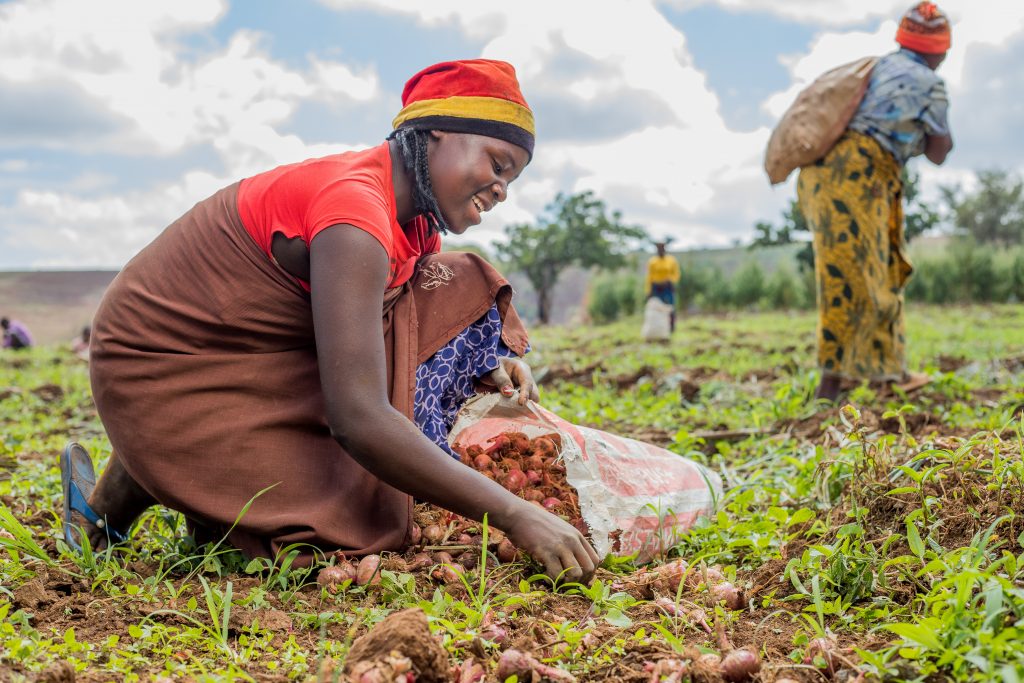Agricultural Knowledge Outreach
CocoaSoils: Integrated Soil Fertility Management
ICL is a partner in CocoaSoils, a long-term project in West Africa that is defining ideal fertilization needs for cocoa production and helping farmers increase their yields on existing farm lands.
Cocoa plantations in West Africa are not as productive as expected, yielding low income for farmers. To compensate for this lack of productivity and improve their livelihoods, many farmers expand their farms into forests. One of the critical factors contributing to a decline in cocoa productivity is poor soil fertility. In addition, there is a knowledge gap regarding crop nutrition and proper management of cocoa trees.
The CocoaSoils program aims to deploy an Integrated Soil Fertility Management (ISFM) approach that embraces an integrated systematic approach to cocoa intensification by using improved planting materials, canopy cover management and pest/disease control together with targeted fertilizer application to enhance sustainability and avoid deforestation. This is complemented by (re)-use of locally available (organic) nutrient sources and appropriate intercropping.
You are welcome to read more in a summary of the Annual CocoaSoils Forum-Ghana.

USAID CROP NUTRITION FARMER TRAINING PROJECT IN TANZANIA - MBOGA NA MATUNDA
In May 2017, the United States Agency for International Development (USAID) sent out a call for proposal to implement a program entitled “Feed the Future Tanzania – Mboga na Matunda” (Fruit and Vegetables). The program aims to increase the productivity and profitability of smallholder horticultural farms in Tanzania. ICL was one of the few companies that won the co-funding award of 150,000 USD.
The first year of ICL’s USAID funded partnership award ended successfully in March 2019. The objectives were to increase agro-dealers’ knowledge of fertilizer products, increase smallholder farmers’ access to affordable and quality fertilizer products; facilitate training on balanced fertilization and available fertilizer products, and enable the adoption of appropriate fertilization practices by farmers (especially women and youth). The target of the project was to reach 3,000 farmers by establishing 30 demonstration plots and to also connect the farmers to a distribution network through local agro-dealers.
One of the objectives of the program was to facilitate training on balanced fertilization and available fertilizer products, and to enable the adoption of appropriate fertilization practices by farmers - especially women and youth.
During the project, ICL identified key lead farmers in the target regions and worked with them to establish demonstration plots. ICL also worked with farmers operating greenhouses to demonstrate to them how to incorporate fertilizers into their irrigation systems (‘fertigation’).
ICL established 34 demonstration plots growing tomatoes, potatoes or onions. Soil analysis was conducted at each demonstration site to establish fertilizer regiments (products and quantities) to be used at the demonstration plots. The plots were divided into two portions each of 0.375 acres. On one side, the farmers applied their usual fertilizers regime, while on the other side, ICL applied fertilizers based on its improved fertilization regime. All other practices were standard across the two portions. ICL provided all the required inputs for the full (0.75A) plot. To ensure success, ICL monitored the activities in each plot closely from the onset (land preparation) to the conclusion (harvesting) and incorporated training of farmers at the demonstration sites.


Training
ICL conducted seven training sessions at the inception of the project in various locations. ICL also conducted training for smallholder horticulture farmers by organizing at least 3 trainings at each demonstration plot. The training was aimed at demonstrating to the farmers basic crop nutrition methods and pointing out the differences between an improved fertilization regime and the more traditional practices, by observing the difference in the crop growth and yield between the farmers practices and the ICL practices. The trainings were conducted at crop establishment, crop growth stage and finally field days were held in each plot at crop harvesting stage. A total of 3,375 farmers were trained.
34 Demonstrations plots - 3,375 farmers trained.
Results
The yields obtained on the plots that adopted ICL’s fertilization practices were evidently higher in all three crops (tomatoes, onions and potatoes). The average increase in yields was 46% for tomatoes, 47% for onions and 57% for potatoes.
Whereas the cost of fertilizers for the ICL practices was higher than the farmer practices side, the return on investment (ROI) was also higher. A calculation on the value cost ratio (VCR) showed that for every extra dollar spent on fertilizer farmers received 6 dollars more for onions and potatoes and 11 dollars more for tomatoes. Read more information on the results of the field trial.
Given the success of the project, USAID has decided to extend the funding for one more year starting from July 2019 to August 2020. ICL is looking forward to another fruitful year ahead.



